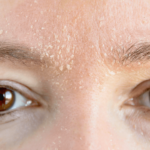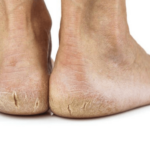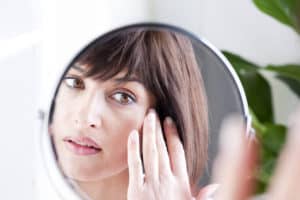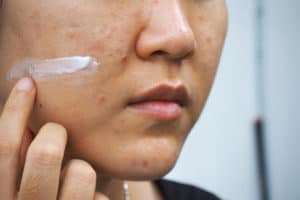If you are in your late 20s or all the way into your 30s, you may have wondered what specific anti-aging product you should be focusing on. You may have considered using Retin-A, Botox, or some other more aggressive anti-aging treatment. But how do you know what the best anti-aging skin care you should focus on is?
In this post, I’ll list the best anti-aging skin care tips for the 30s, including:
- Understand What Happens to Your Skin in Your 30s
- Use an Enzyme-Based Exfoliant
- Use Serums with High Concentrations of Vitamin A, C, and E
- Use Sea Buckthorn Berry Oil or Grapeseed Oil
- If You Use Retin-A, Invest in a Good Hydrating Cream
- Invest in a Good Toner, Such as One That Contains Peptides
- Use Eye Gel If You Have Oily Skin. Use Eye Cream If You Have Dry Skin
- Invest in a Good Sunscreen, Such as an All-In-One Sunscreen
Read on to learn what happens to your skin in your 30s, as well the best products and ingredients to revitalize it and protect it from signs of aging. If you’re in your 40s or 50s, see our earlier post: best anti-aging skin care tips for those in their 40s and 50s.
Best Anti-Aging Skin Care Tips for the 30s
1. Understand What Happens to Your Skin in Your 30s
In your 30s, you will start to see the first visible signs of aging on your skin. By this time, your skin cell turnover rate starts to slow down, so you may start to see some uneven skin tone and dullness, and your skin will start to lose plushness and bounce.
The collagen and elastin fibers in your skin loosen, and the elastin coils become tight, which is why fine lines and wrinkles start to form on your skin.
Exposure to UV rays and pollution also damages the skin, and while its effects may not be very obvious yet if you had abused your skin in your 20s and even when you were younger by not wearing sunscreen or by not using any skincare products, these negative effects may start to show up as early as your mid-20s.
What’s more, if you’re already starting to see fine lines and wrinkles, it means damage accumulation started much earlier, so it is very important now to start paying attention to the skincare products that you are using on your face.
2. Use an Enzyme-Based Exfoliant
Many young women want to know what the best anti-aging skincare cream or moisturizer is. This is important, but at this age, you cannot ignore exfoliation. If your skin cannot absorb the serums, creams, and moisturizers you apply, then you’re just wasting your money.
Fair-skinned and thin-skinned people may start to see fine lines and wrinkles earlier than people who have thicker and darker skin, as the latter often produce more oil. Also, age spots and uneven skin tone are more prominent on fairer-skinned people, as people with darker skin will have more melanin closer to the skin surface. This provides natural protection against the sun but may also make them more prone to hyperpigmentation.
For those who have fair or sensitive skin, the best type of exfoliants is enzyme-based. Some examples are bromelain, an enzyme from pineapples, papain, which is from papayas, or enzymes from cherries. These are gentler than glycolic acid-based exfoliants, although you really need to test them to see if your skin can take them.
You can also use lactic acid, which is one of the more gentle acids or enzymes from pumpkins. For people with acne, salicylic acid is a good option. Beta hydroxy acid is also good, and some sensitive types actually tolerate beta hydroxy acids better than fruit acids. However, the only way to know if you can tolerate it or not is to test it, as true sensitive skin types do not take glycolic acid well.
Food acids are recommended for younger skin because they not only help exfoliate the skin but also boost the skin’s absorption of the natural antioxidants and polyphenols that they contain.
3. Use Serums with High Concentrations of Vitamin A, C, and E
Look for serums that have high concentrations of vitamins A, C, and E, although you may not be able to tolerate vitamins A and C if you have sensitive skin. If you can’t afford expensive serums, then look into oils, as they have naturally occurring antioxidants.
See our Recommended Serums page.
4. Use Sea Buckthorn Berry Oil or Grapeseed Oil
One of the best and most highly recommended facial oils is sea buckthorn berry oil. Not only does it have antioxidants, but it also has the complete family of omega fatty acids that you need to help supplement the ceramides, the fatty acids in cholesterol that hold your keratinocytes together.
Another popular oil is grapeseed oil. It doesn’t have the complete family of omega fatty acids, but it has good antioxidant benefits.
5. If You Use Retin-A, Invest in a Good Hydrating Cream
At this stage, you don’t really need hundred-dollar anti-aging creams. To get the most bang for your buck, focus on serums, which usually have a high concentration of active ingredients.
However, if you’re using Retin-A or something that speeds up your skin cell turnover rate, you’ll want to invest in a good hydrating cream, not necessarily one with anti-aging effects. When skin cell turnover is high, your skin starts to lose its ability to retain moisture, so a good cream will hydrate your skin and keep moisture in.
See our Recommended Moisturizers page.
6. Invest in a Good Toner, Such as One That Contains Peptides
The pro tip to increase the hydrating capability of your cream is to use a very good toner. Toners increase the efficacy of bioactive ingredients, such as the antioxidants and hydrating properties in your serum.
One of the main ingredients of a good toner is humectants, such as glycerin, sodium PCA, and sodium hyaluronate. Humectants help the skin retain moisture and increase hydration levels.
A good toner will also have peptides, such as palmitoyl tetrapeptide. Peptides are the new technology for anti-aging ingredients, and they make the skin smooth and supple by increasing its barrier function. Peptides increase the hydration levels of the skin so that the skin can more easily metabolize and make its own fatty acids and cholesterol, which seal in moisture.
See our Recommended Toners page.
7. Use Eye Gel or Eye Cream
Eye creams and eye gels are generally, in addition to serums, the most expensive part of one’s skincare routine in terms of what you get for their size, and that is because they typically have the highest concentration of bioactive ingredients.
If you don’t have under-eye bags, saggy eyelids, or dark under-eye circles, focus on hydration. Typically, eye gels or water-based gels are preferable if you have oily skin, while creams are preferable for those with dry to normal skin.
If you have creams that have retinol or if you’re using Retin-A under the eyes, you need to be very careful when you’re applying it around the periocular eye area, as the skin here is thinner and highly sensitive.
Face cream would be preferable over eye cream because retinol and Retin-A can increase irritation and inflammation, and when you use them consistently, fine lines and wrinkles around the skin can increase.
See our Recommended Eye Gel and Eye Cream page.
8. Invest in a Good Sunscreen, Such As An All-In-One Sunscreen
One important thing that you need to spend good money on is sunscreen. This is very important in preventing sun damage, and it will even out your skin tone and provide hydration. Look into getting an all-in-one sunscreen that has plant-based antioxidants and peptides as well as plant-based lighteners and brighteners.
Mineral-based sunscreens are preferable as they don’t have chemicals, which can make the skin itchy and inflamed. If you can find an all-in-one sunscreen that has anti-aging, moisturizing, and lightening benefits, that is your best bet. Make sure it’s at least 30 SPF or higher, and avoid generic drugstore brands.
Conclusion – Best Anti-Aging Skin Care Tips for the 30s
To recap, here are the Best Anti-Aging Skin Care Tips for the 30s:
- Understand What Happens to Your Skin in Your 30s
- Use an Enzyme-Based Exfoliant
- Use Serums with High Concentrations of Vitamin A, C, and E
- Use Sea Buckthorn Berry Oil or Grapeseed Oil
- If You Use Retin-A, Invest in a Good Hydrating Cream
- Invest in a Good Toner, Such as One That Contains Peptides
- Use Eye Gel If You Have Oily Skin. Use Eye Cream If You Have Dry Skin
- Invest in a Good Sunscreen, Such as An All-In-One Sunscreen






![Say Goodbye To Wrinkles On The Face [Easy Tips to Prevent Them] wrinkles on face](https://skincaregeeks.com/wp-content/uploads/2023/04/wrinkles-on-face-1-2-150x150.png)


